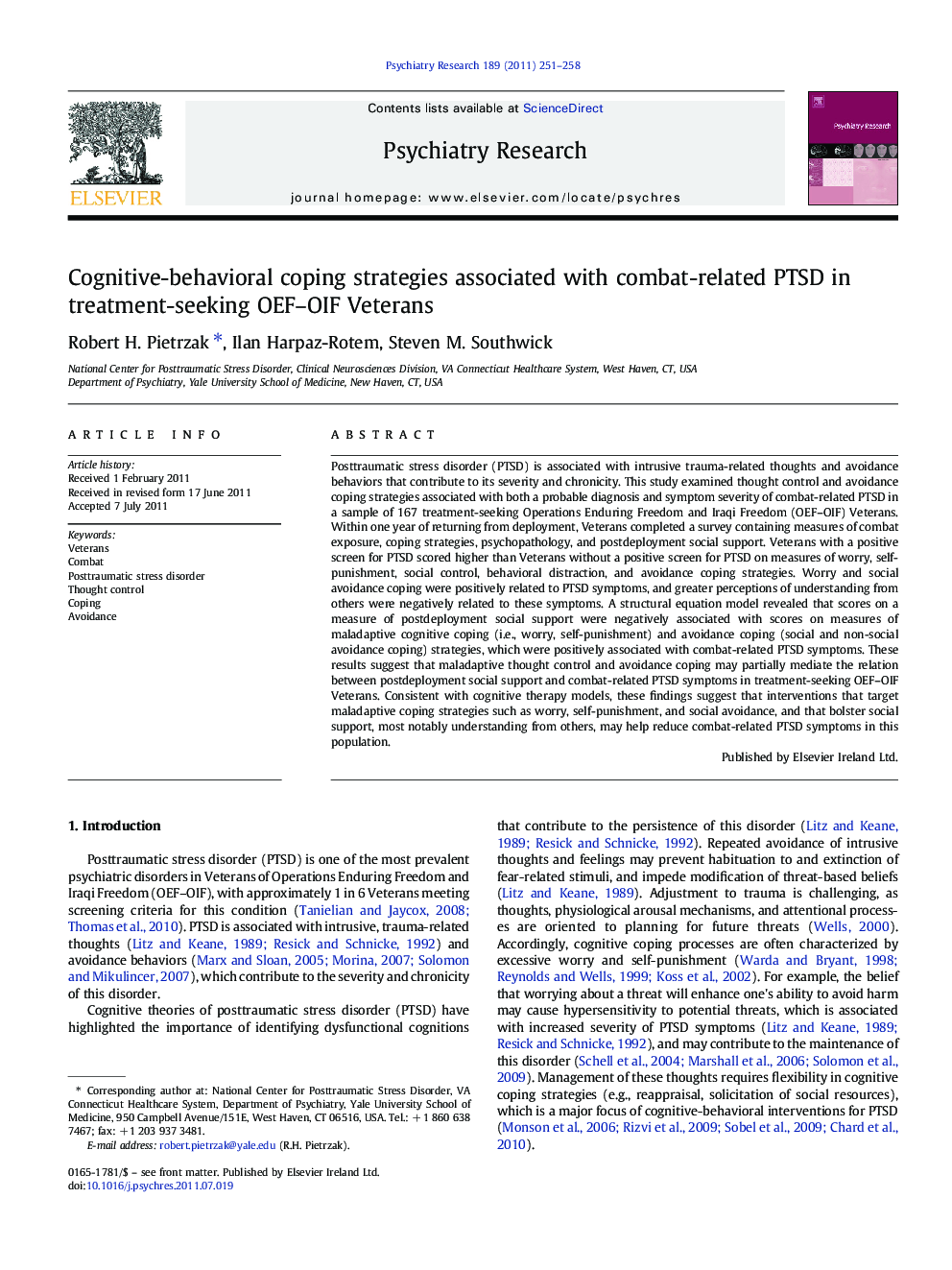| کد مقاله | کد نشریه | سال انتشار | مقاله انگلیسی | نسخه تمام متن |
|---|---|---|---|---|
| 333735 | 545963 | 2011 | 8 صفحه PDF | دانلود رایگان |

Posttraumatic stress disorder (PTSD) is associated with intrusive trauma-related thoughts and avoidance behaviors that contribute to its severity and chronicity. This study examined thought control and avoidance coping strategies associated with both a probable diagnosis and symptom severity of combat-related PTSD in a sample of 167 treatment-seeking Operations Enduring Freedom and Iraqi Freedom (OEF–OIF) Veterans. Within one year of returning from deployment, Veterans completed a survey containing measures of combat exposure, coping strategies, psychopathology, and postdeployment social support. Veterans with a positive screen for PTSD scored higher than Veterans without a positive screen for PTSD on measures of worry, self-punishment, social control, behavioral distraction, and avoidance coping strategies. Worry and social avoidance coping were positively related to PTSD symptoms, and greater perceptions of understanding from others were negatively related to these symptoms. A structural equation model revealed that scores on a measure of postdeployment social support were negatively associated with scores on measures of maladaptive cognitive coping (i.e., worry, self-punishment) and avoidance coping (social and non-social avoidance coping) strategies, which were positively associated with combat-related PTSD symptoms. These results suggest that maladaptive thought control and avoidance coping may partially mediate the relation between postdeployment social support and combat-related PTSD symptoms in treatment-seeking OEF–OIF Veterans. Consistent with cognitive therapy models, these findings suggest that interventions that target maladaptive coping strategies such as worry, self-punishment, and social avoidance, and that bolster social support, most notably understanding from others, may help reduce combat-related PTSD symptoms in this population.
Journal: Psychiatry Research - Volume 189, Issue 2, 30 September 2011, Pages 251–258